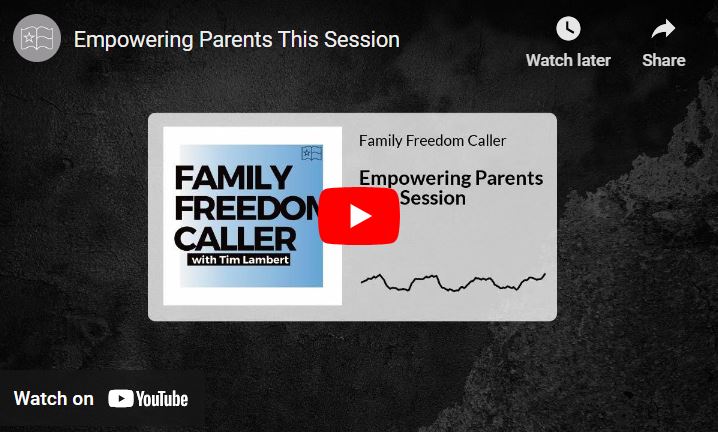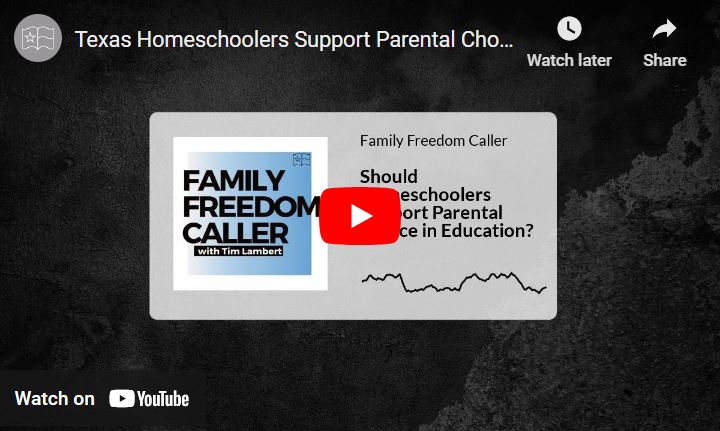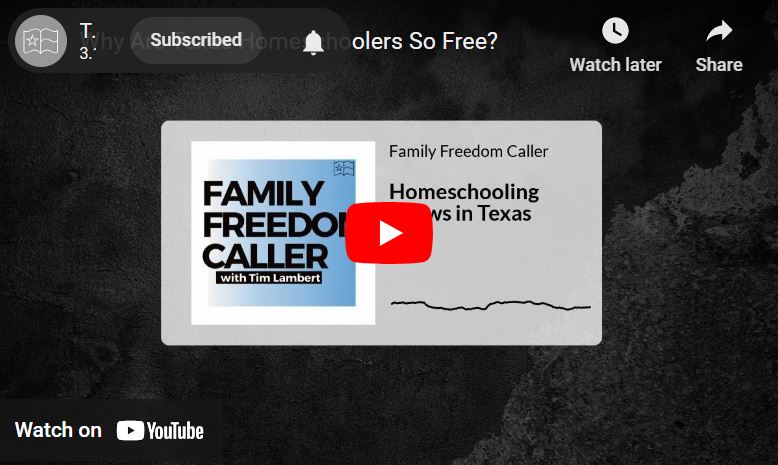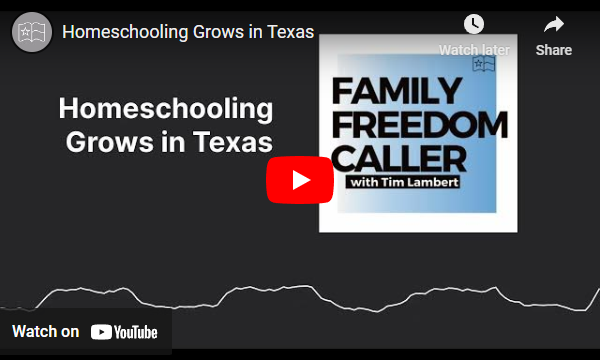Note: In 2021, the Texas legislature finally granted school districts the ability to give access for homeschool students into University Interscholastic League (UIL) extracurricular activities.
For decades, THSC and thousands of Texas homeschoolers had been working to regain the freedom to Equal Access participation paid for by parents’ tax dollars.
For more information, see THSC’s UIL Equal Access Guide.
A little over a year ago, the Texas Legislature passed a bill that changed the law to allow homeschooled students in Texas to participate in extracurricular activities in the University Interscholastic League (UIL), although each school district gets to decide whether homeschoolers will have access in their district.
UIL leadership, made up of superintendents of school districts across the state, was immediately opposed to the legislation.
The coaches association led the charge against the bill again and argued that it was “unfair” to public school students. This is in spite of the fact that over thirty other states allow homeschooled students to participate in extracurricular activities in the district in which they live with very little – if any – problems.
The measure passed with significant bipartisan support, and many could not understand what the problem was.
School districts get to decide whether or not to allow homeschooled students, and UIL simply has to adopt rules to allow that to happen.
While this measure was seen by the homeschool community as a stroke for parental rights, UIL officials were reportedly not happy.
The Competition Committee of UIL, which was tasked with adopting the rules to implement this new law, clearly sought to intimidate school district officials on the issue by proposing a rule that was obviously intended to punish school districts that allowed homeschooled students to participate in their UIL events.
For context, schools currently participate in UIL competitions with other schools of similar size. Small schools are not forced to play against large schools because the large talent pool for athletes at a large school gives that school a substantial advantage. The size of a school is determined by the size of the student population in the district.
UIL’s Competition Committee adopted a rule requiring that, if a school granted UIL access for homeschooled students, that school would have its student population size increased by the number of homeschool students that UIL estimated to live in the district.
In other words, if a school chose to grant UIL access to homeschoolers, they might find their “school size” upgraded and be forced to compete against larger schools. This was an overt attempt to intimidate and punish school districts that granted equal access to homeschool students.
Aside from UIL not having any reliable estimate of how many homeschool students live in a particular district, it is also clearly the case that most homeschool students would not actually be competing in UIL, even in an equal access school district.
This was not a part of the legislation and appeared to many to be contrary to the spirit, if not the letter, of the law.
The rule was vetoed by the Texas Commissioner of Education because it appeared to conflict with the intent of the law. Nonetheless, it contributed to the slow adoption by many school districts of equal access for homeschoolers because those districts feared that heavy handed rules from UIL might harm their district if they let homeschoolers in.
Today more and more school boards are allowing homeschooled students who live in the district to take part in extracurricular activities in the district.
After all, their parents pay taxes there, too. We expect to see this trend expand as more parents ask their school boards to adopt this option.
Help us in our mission to protect homeschool freedom and in our efforts to keep you updated on the latest legislative news.
If you agree with us and support our mission to support parents, join THSC or become a supporter and help us stand in the gap for the families of Texas.
Subscribe to our newsletters to receive important updates.
Tim Lambert, THSC President
Tim Lambert, has been the president of the Texas Home School Coalition since 1990 and involved in homeschool leadership since 1984. He and his wife Lyndsay taught their four now-grown children at home for 16 years, graduating the last two in 2000. As the head of the organization for the leading home school state in the country, he is recognized as an authority on home education issues.
Tim has testified before numerous Texas legislative committees on issues related to homeschooling and often deals with state government agencies, including the Texas Education Agency and the Texas Department of Family and Protective Services. He has also addressed such conferences as the Texas Association of Collegiate Registrars and Admissions Officers on the topic. He holds a B.A. in political science from Texas Tech University and is active in the political arena, serving eight years as Republican National Committeeman for Texas. Tim is committed to serving the homeschooling community and to protecting parents’ right to choose the method of education of their children.
Note: In 2021, the Texas legislature finally granted school districts the ability to give access for homeschool students into University Interscholastic League (UIL) extracurricular activities.
For decades, THSC and thousands of Texas homeschoolers had been working to regain the freedom to Equal Access participation paid for by parents’ tax dollars.
For more information, see THSC’s UIL Equal Access Guide.
A little over a year ago, the Texas Legislature passed a bill that changed the law to allow homeschooled students in Texas to participate in extracurricular activities in the University Interscholastic League (UIL), although each school district gets to decide whether homeschoolers will have access in their district.
UIL leadership, made up of superintendents of school districts across the state, was immediately opposed to the legislation.
The coaches association led the charge against the bill again and argued that it was “unfair” to public school students. This is in spite of the fact that over thirty other states allow homeschooled students to participate in extracurricular activities in the district in which they live with very little – if any – problems.
The measure passed with significant bipartisan support, and many could not understand what the problem was.
School districts get to decide whether or not to allow homeschooled students, and UIL simply has to adopt rules to allow that to happen.
While this measure was seen by the homeschool community as a stroke for parental rights, UIL officials were reportedly not happy.
The Competition Committee of UIL, which was tasked with adopting the rules to implement this new law, clearly sought to intimidate school district officials on the issue by proposing a rule that was obviously intended to punish school districts that allowed homeschooled students to participate in their UIL events.
For context, schools currently participate in UIL competitions with other schools of similar size. Small schools are not forced to play against large schools because the large talent pool for athletes at a large school gives that school a substantial advantage. The size of a school is determined by the size of the student population in the district.
UIL’s Competition Committee adopted a rule requiring that, if a school granted UIL access for homeschooled students, that school would have its student population size increased by the number of homeschool students that UIL estimated to live in the district.
In other words, if a school chose to grant UIL access to homeschoolers, they might find their “school size” upgraded and be forced to compete against larger schools. This was an overt attempt to intimidate and punish school districts that granted equal access to homeschool students.
Aside from UIL not having any reliable estimate of how many homeschool students live in a particular district, it is also clearly the case that most homeschool students would not actually be competing in UIL, even in an equal access school district.
This was not a part of the legislation and appeared to many to be contrary to the spirit, if not the letter, of the law.
The rule was vetoed by the Texas Commissioner of Education because it appeared to conflict with the intent of the law. Nonetheless, it contributed to the slow adoption by many school districts of equal access for homeschoolers because those districts feared that heavy handed rules from UIL might harm their district if they let homeschoolers in.
Today more and more school boards are allowing homeschooled students who live in the district to take part in extracurricular activities in the district.
After all, their parents pay taxes there, too. We expect to see this trend expand as more parents ask their school boards to adopt this option.
Help us in our mission to protect homeschool freedom and in our efforts to keep you updated on the latest legislative news.
If you agree with us and support our mission to support parents, join THSC or become a supporter and help us stand in the gap for the families of Texas.
Subscribe to our newsletters to receive important updates.
Tim Lambert, THSC President
Tim Lambert, has been the president of the Texas Home School Coalition since 1990 and involved in homeschool leadership since 1984. He and his wife Lyndsay taught their four now-grown children at home for 16 years, graduating the last two in 2000. As the head of the organization for the leading home school state in the country, he is recognized as an authority on home education issues.
Tim has testified before numerous Texas legislative committees on issues related to homeschooling and often deals with state government agencies, including the Texas Education Agency and the Texas Department of Family and Protective Services. He has also addressed such conferences as the Texas Association of Collegiate Registrars and Admissions Officers on the topic. He holds a B.A. in political science from Texas Tech University and is active in the political arena, serving eight years as Republican National Committeeman for Texas. Tim is committed to serving the homeschooling community and to protecting parents’ right to choose the method of education of their children.











